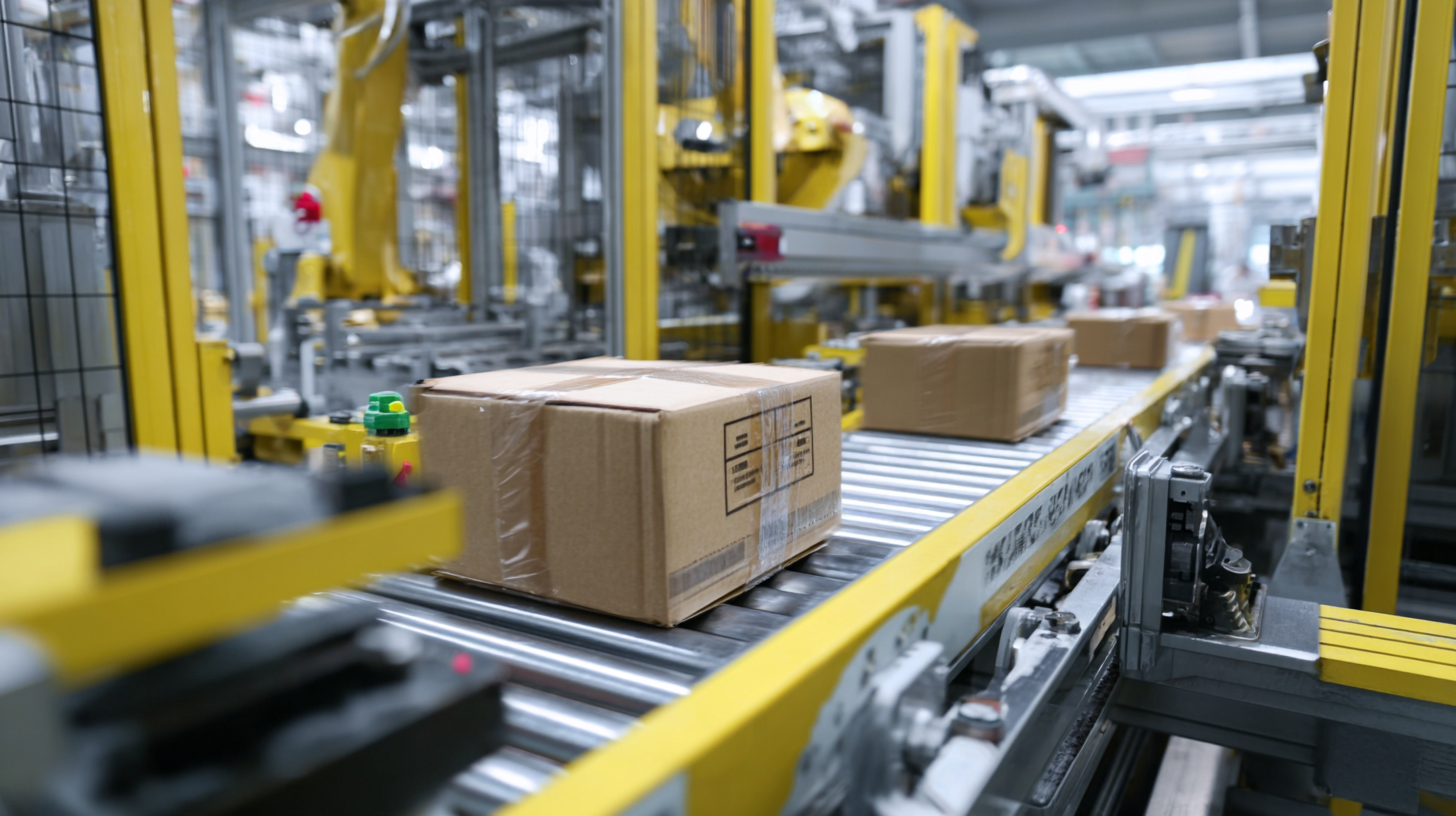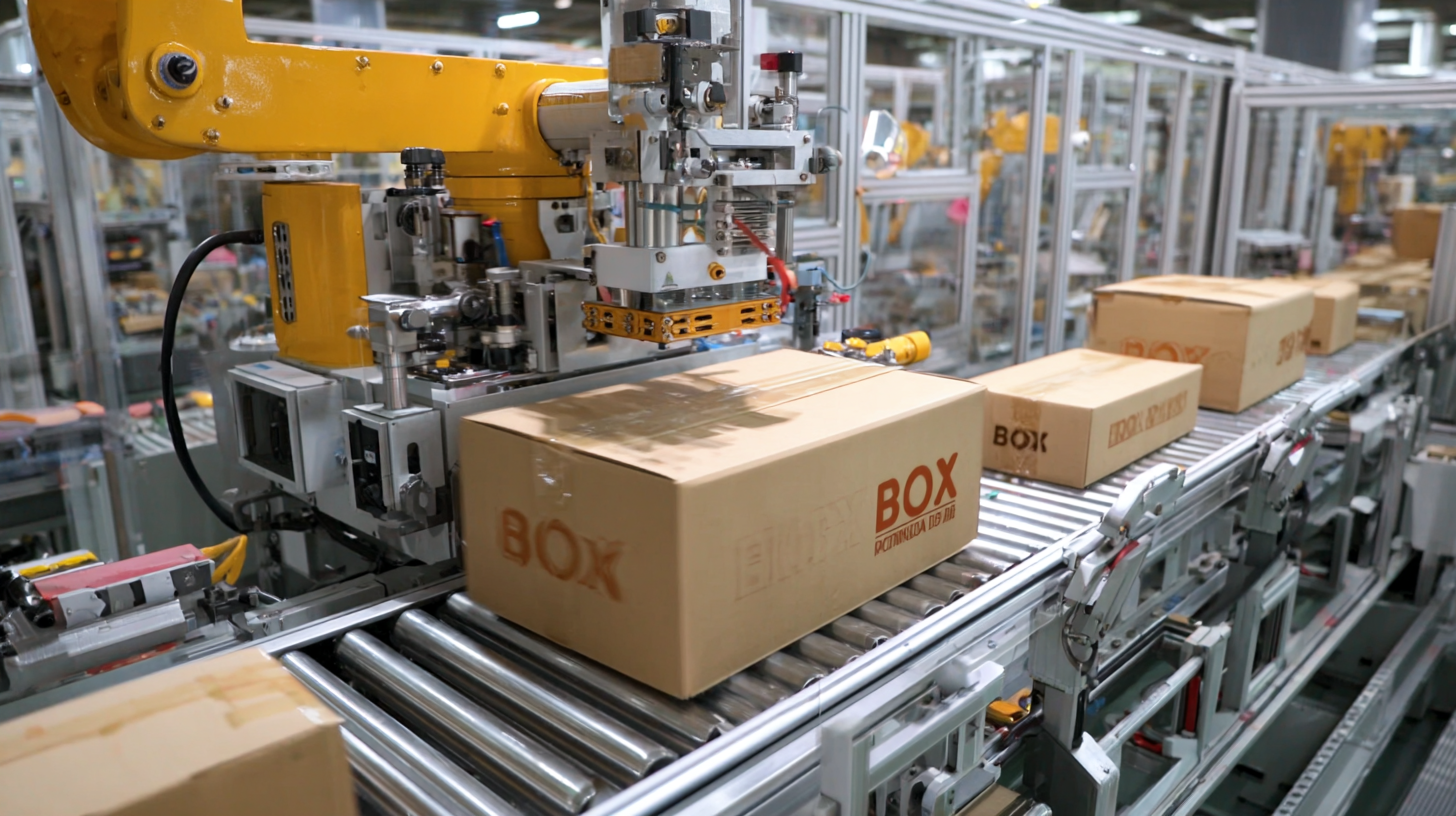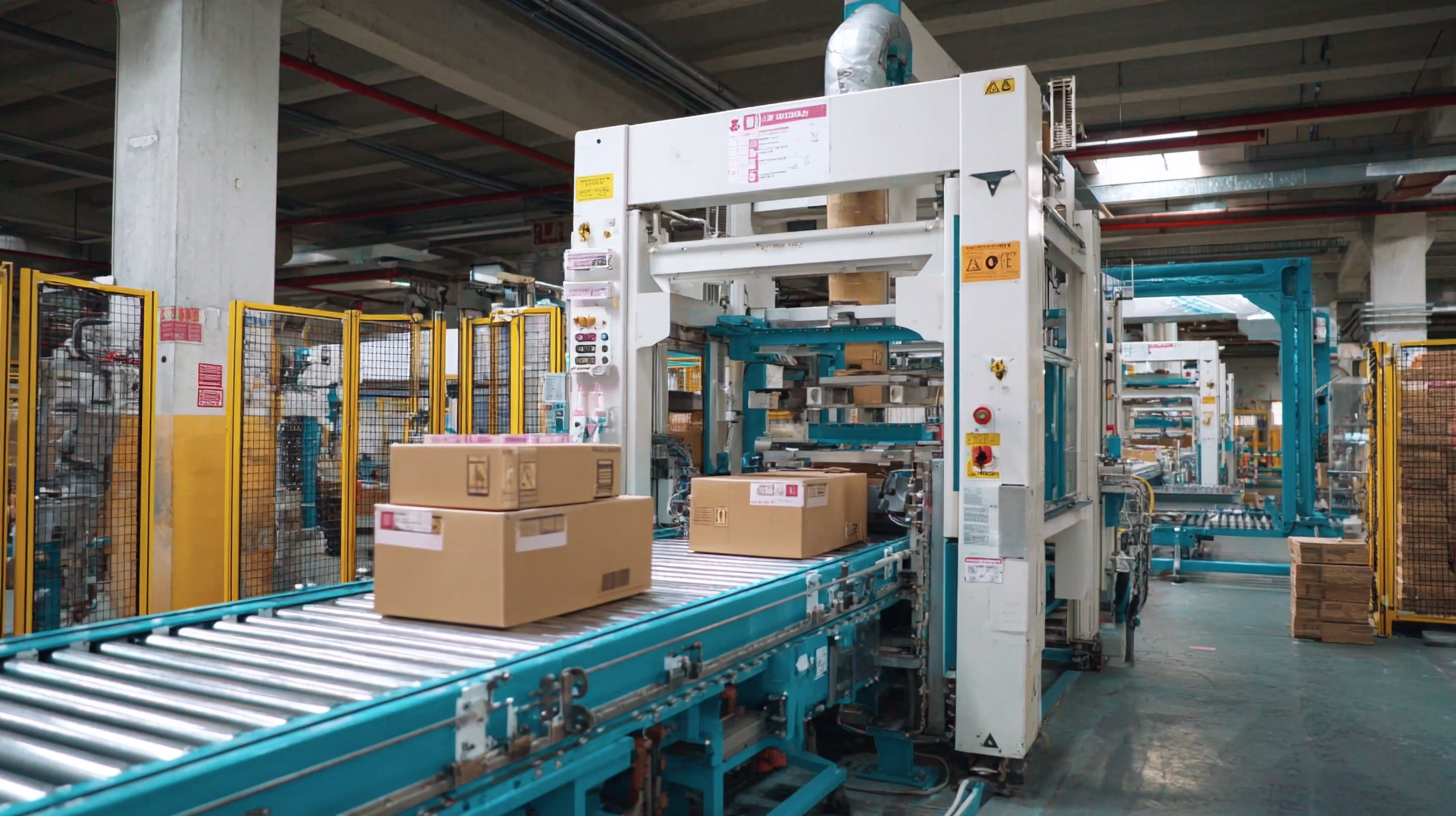Call for Price: 0086-15515573212
In the fast-paced world of global commerce, maximizing efficiency is a top priority for businesses looking to streamline their operations and reduce costs. One crucial aspect of this efficiency is the effective use of a Box Packing Machine. This advanced equipment not only enhances the speed of packaging but also ensures consistent quality and reduces labor costs.

For global buyers, understanding the advantages of modern box packing machines can lead to significant improvements in productivity and profitability. In this ultimate guide, we will explore the various benefits these machines offer, from improved accuracy in packing to the ability to handle diverse product sizes. Whether you’re a small manufacturer or a large-scale distributor, investing in the right Box Packing Machine can transform your packaging process and drive your business forward.
Modern box packing machines are pivotal in enhancing operational efficiency for global buyers, offering advanced features that streamline the packing process. These machines are designed with automation capabilities that allow for quicker packing times and reduced labor costs, crucial in today's fast-paced e-commerce environment. With innovations in robotics and artificial intelligence, these machines can adapt to various product sizes and shapes, ensuring optimal packing without wasting materials.
Moreover, many modern box packing machines incorporate smart technology that enables real-time monitoring and analytics. This feature allows businesses to track packing efficiency and identify bottlenecks in the process, ultimately leading to better resource allocation and improved customer satisfaction. Additionally, sustainability is becoming more integral, with machines designed to minimize waste and utilize eco-friendly packaging materials. As companies, particularly in retail and logistics, seek to maximize productivity while maintaining their commitment to environmental responsibility, understanding the key features of these advanced packing solutions becomes essential for strategic long-term planning.

The decision between manual and automated box packing machines hinges significantly on cost savings and operational efficiency. According to a recent report by Research and Markets, businesses that switch to automated packing solutions can achieve up to a 30% reduction in labor costs. This is particularly relevant in today's labor market, where rising wages and staff shortages are pressing challenges for manufacturers. Automated systems not only reduce the need for manual labor but also minimize the risk of errors, which can lead to additional costs.
Moreover, automated box packing machines are designed to optimize packing speed and accuracy. A study by PwC indicated that automated packaging lines can increase productivity by as much as 50%, allowing companies to meet higher demand without the proportional increase in costs. These machines also ensure a consistent packing quality, which is vital for maintaining brand reputation and customer satisfaction. In contrast, manual packing often results in variability in packing quality, leading to higher return rates and loss of customer trust. Thus, investing in automation is not just a cost-saving measure but a strategic move towards sustainable growth in an increasingly competitive global market.
The efficiency of box packing machines is heavily influenced by speed and precision, two crucial factors that can significantly enhance productivity for global buyers. Recent industry reports indicate that packing machines with advanced automation can boost speed by up to 80%, allowing companies to process higher volumes of goods with minimal downtime. For instance, a packing machine that operates at a rate of 40 boxes per minute can shift to over 70 boxes per minute with the integration of high-speed capabilities, thereby increasing throughput and meeting the growing demands of e-commerce.
Furthermore, precision in packing is equally essential, as it reduces waste and optimizes material usage. According to a study conducted by MarketsandMarkets, precise packing solutions can cut material costs by up to 15% by minimizing excess packaging. This not only contributes to cost savings but also aligns with sustainability goals by reducing the overall carbon footprint. In an industry where every second and every inch of material counts, the right box packing machine can be a game changer, enabling businesses to stay competitive in an increasingly fast-paced market.
Investing in advanced packing technology is becoming increasingly attractive for global buyers who seek to enhance their operational efficiency and overall profitability. Modern box packing machines not only streamline the packaging process but also significantly reduce labor costs and minimize human error. The financial benefits are evident; businesses can save on overtime wages and reduce waste generated from improper packing, which ultimately leads to lower operational costs.
Moreover, the initial investment in sophisticated packing machinery can yield substantial long-term returns. Many advanced machines are designed to handle variable product sizes and different packaging materials, allowing companies to remain agile in a fast-changing market. This flexibility helps organizations optimize their production lines and respond swiftly to market demands, further reinforcing their competitive edge. As companies continue to prioritize sustainability, upgrading to energy-efficient packing solutions can also lead to reduced utility costs, positively impacting both the environment and the bottom line.

The integration of box packing machines across various industries serves as a prime example of how efficiency enhancements can drive sustainable practices.
Case studies from global implementations reveal a significant reduction in waste and labor costs while maximizing output quality. For instance, in the e-commerce sector, automated packing systems have streamlined operations, reducing packing times and minimizing material usage.
This aligns with the growing emphasis on green innovation, as companies seek sustainable solutions to meet both consumer demands and regulatory requirements.
Moreover, the shift towards standardized packaging in export markets illustrates the vital role that box packing machines play in compliance and competitiveness.
As seen in the automotive and building sectors, the implementation of efficient packaging technology has not only improved product safety during transit but also contributed to lower carbon footprints.
With the increasing pressure to adopt environmentally friendly practices, these automated solutions provide a pathway for industries to enhance their sustainability profiles while navigating the complexities of global trade and regulatory landscapes.